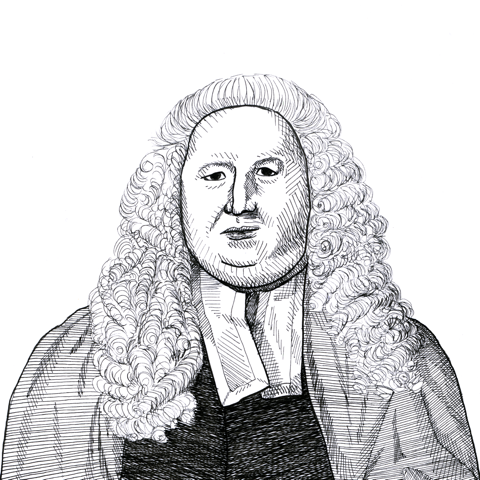
Sir William Blackstone provides a strong defence of personal liberty and concludes that to “secretly hurry” a man to prison is a “dangerous engine of arbitrary government” (1753)
Found in: Commentaries on the Laws of England in Four Books, vol. 1
The great English jurist, Sir William Blackstone (1723-1780), argued in his Commentaries on the Laws of England (1753) that one of the key "absolute rights of individuals" was the right to the preservation of one’s personal liberty. Following from this principle he further argued that it was "a more dangerous engine of arbitrary government" to "secretly hurry" a man to jail where he might suffer unknown or forgotten by the people
Law
Of great importance to the public is the preservation of this personal liberty; for if once it were left in the power of any the highest magistrate to imprison arbitrarily whomever he or his officers thought proper, (as in France it is daily practised by the crown,) there would soon be an end of all other rights and immunities. Some have thought that unjust attacks, even upon life or property, at the arbitrary will of the magistrate, are less dangerous to the commonwealth than such as are made upon the personal liberty of the subject. To bereave a man of life, or by violence to confiscate his estate, without accusation or trial, would be so gross and notorious an act of despotism, as must at once convey the alarm of tyranny throughout the whole kingdom; but confinement of the person, by secretly hurrying him to jail, where his sufferings are unknown or forgotten, is a less public, a less striking, and therefore a more dangerous engine of arbitrary government.